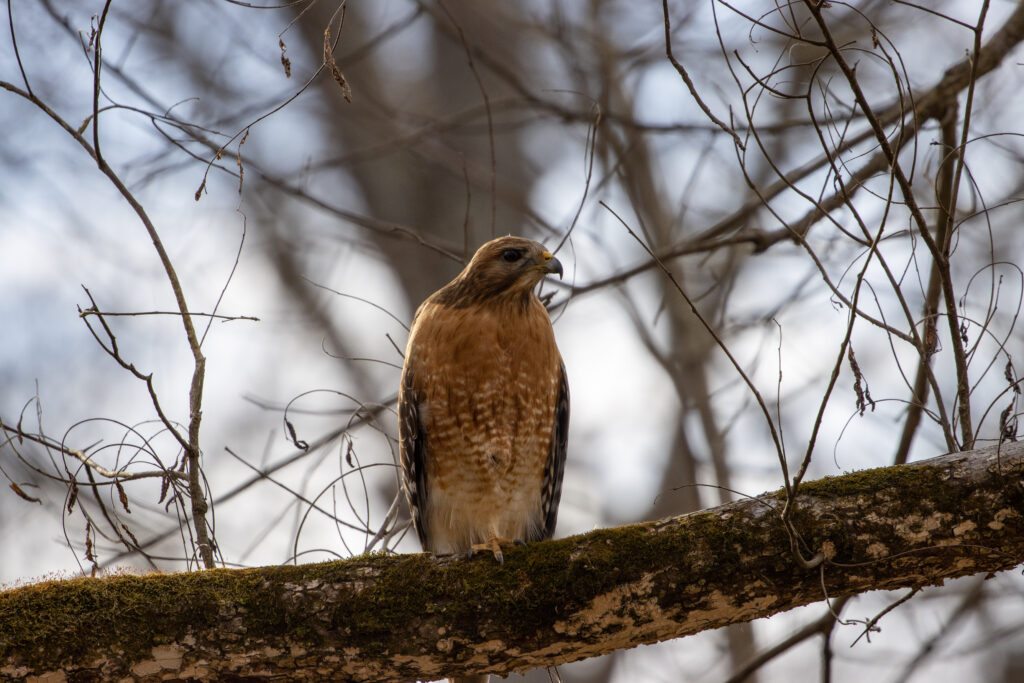
Last week as I was scrolling through Facebook, I noticed a video of a gorgeous Red-shouldered Hawk sunning on one of my childhood friend’s back patios. (See the video here.) I was (obviously) thrilled by the proximity of this raptor and how long she was able to watch it calmly sunbathe. After excitedly writing her to share what species she was seeing and how neat I thought it was, she followed up with a big question—is it dangerous? Does this bird pose any threat to me, my family, or my pets?
Over the years, we’ve been asked this question numerous times, and the short answer is… it depends. Although raptors don’t pose threats to humans (unless they’re actively disturbing raptors), they can pose threats to some pets. So how do you know if your furry or feathered friend is at risk?
According to Dr. Steve Slater, HWI’s Director of Conservation Science, it’s extremely rare but possible. “Raptors can and have taken pets, but it isn’t very common,” he shared. However, there are a few things to consider to weigh the risks raptors may pose to your pets.
Supervision
One of the biggest deterrents to a raptor attack is your presence. “It’s important to remember that raptors view you as a threat, too,” Steve shared. “I’ve never heard of a supervised incident between a raptor and a pet.” So, if you’re outside with your pet, the threat posed by raptors is slim to none. This is especially true if your pet is leashed. Bonus: if your pet is leashed, it won’t pose a threat to wildlife, either!
Size
Raptors appear large, but the truth is that they’re mostly feathers. In the United States, most raptors simply aren’t large enough to harm most “standard” household pets, like cats and dogs. “Most North American raptors weigh less than two pounds, and they generally cannot carry prey larger than their body weight,” Steve explained. “Plus, you’re unlikely to see the larger raptors in your backyard since species like Golden and Bald Eagles are typically not interested in urban and suburban habitats.” Still, while a raptor might not be able to carry your pet away, it could still harm your pet if it felt threatened. That’s why we recommend supervising your pets while they’re outside.
Type of Pet
Some types of pets are simply more prone to raptor attacks than others. Chickens, rabbits, and other smaller animals are more likely to attract raptor attacks, especially since many urban raptors, like the Cooper’s Hawk, specialize in hunting birds and small mammals. Cats and dogs are also better equipped to defend themselves with their claws and jaws. Take time to consider whether your pet has a way to protect itself or shelter it from predators of any kind before leaving them outside unsupervised. For animals that live outside, like rabbits and chickens, sturdy enclosures with roofs are another good option. This can help protect them from other urban predators like coyotes, foxes, and raccoons, too.
Raptors are beautiful, powerful creatures, but like all apex predators, they must hunt to survive. By following the tips above, you’ll protect your pet from threats posed by raptors—and other predators—while also supporting a healthy, complete ecosystem.
This blog was written by Kirsten Elliott, HWI’s Development & Communications Director. You can learn more about Kirsten here.
Photos by Gary Harvey
